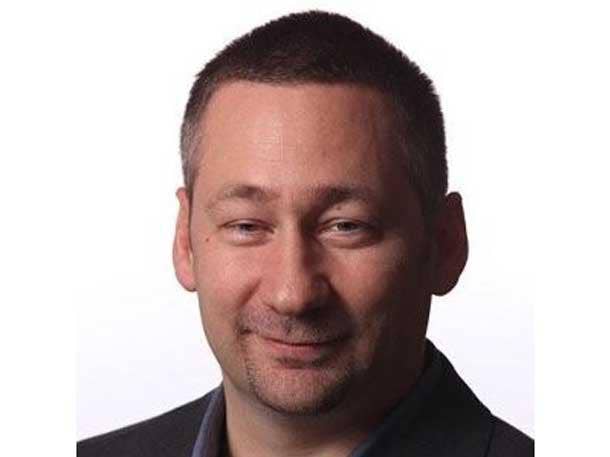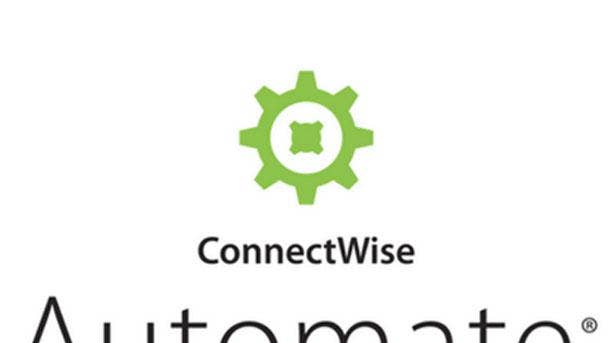ConnectWise CEO Says ‘We Definitely Failed’ In Communication To Partners And Workers, But Vows ‘Doubling Down’ To Right The Ship
After four percent of employees were laid off, ConnectWise CEO Jason Magee said the company “definitely failed” its partners and employees when it comes to communicating the company’s goals and priorities.

‘Do We Have To Get Our Mojo Back?’
Days after layoffs sent four percent of its workforce packing, ConnectWise CEO Jason Magee said the company “definitely failed” its partners and employees when it comes to communicating the company’s goals and priorities.
“Internally, someone asked what are we doing to make support better?” Magee told CRN. “I asked them if they knew how many resources we had when we started the year? How many resources we are at currently, and they had no idea, right? So we’re not even just not good at communicating externally, we have the same internal challenge. That’s where we definitely failed in this aspect.”
Magee said over the last 30 to 60 days the company has, put more of its India colleagues to work in Tier 1 support, bumping up the total number of support personnel from 150 to 225, in that timeframe. The move to lay off colleagues – across all departments, the company said -- was the unfortunate consequence of COVID-19’s impact on the company’s plan for 2020, and not the mandate of its private equity owners Thoma Bravo.
“We had a plan and an approach after the acquisition of Continuum and whatnot, of taking what I would call, the humane approach and, as people leave, to reinvest and ship things around to the people who need it,” he said. “What COVID impacted us on was the approach. That approach slowed down and that’s what we had to pivot on.”
In fact, he said, rather than taking revenue, Thoma Bravo actually gave ConnectWise between $25 million and $40 million in additional cash to enhance its products and delivery.
“Do we have to get our mojo back?’ I don’t look at it that way, as we’ve always got to stay on top of our game,” he said. “We’re always going to be pushing ourselves to be the company that everyone in the industry looks up to. Do I feel like we’re there? No.”

A number of partners have confirmed what a poster said on Reddit, which is that you outsourced ConnectWise’s Tier 1 support to India. They are concerned about this, because of the complexities of the software, a lack of familiarity with their businesses, and how that, as well as time zone differences could make it challenging to train up that support staff.
At the end of the day it’s not outsource. They’re ConnectWise colleagues. We acquired those colleagues with the acquisition of Continuum. Candidly, they’re great colleagues. Based in India, through the merger and acquisition of ConnectWise. We’re located in 16 offices globally.
ConnectWise has also been in India for some time through a partnership, and through an acquisition of what became the ConnectWise India office. So India is not new to ConnectWise. Its definitely not new to Continuum. So if you look at that in general, that provides a lot of ability, from the stand point of, follow the sun, being able to provide appropriate support levels and SLAs for our partners globally. If you look at Continuum. They have resources and service delivery resources scattered throughout the southern US throughout, some of their acquisitions.
I’ll admit that where ConnectWise needs to do a better job is communicating what we are doing, communicating to our partners the moves that we are making that will help them with their experience and those support challenges.

Some of the partners said while ConnectWise has not been known for having a great partner experience, it had been improving, but over the past year or so, they say it seems as though it has gotten worse. Do you agree with them?
Yes. I will agree we have taken a step back. If you attended or watched my keynote at IT Explore I admit, I believe I even used the term, ‘Hey I’m putting the red flag in on partner experience’ and obviously a piece of that experience is the support organization.
We are doubling down. We are making investments into making that experience better. Not only from a people standpoint, but if you look at where we started the year, in terms of our support for resources to where we are now, we’re 60 to 80 resources greater than where we were in January.
Yes. Granted, most of those resources, two things: India, and the second piece is they’ve really just come on-line in the last month or two. They go through a training program, and all that, to make sure we get them up to a certain level, so they could do right by getting our partners back up and running. So, if you listen to my keynote, partner experience, is a big thing. One of the number one, two priorities in the company.
We are just launching components of what we call “Voice of the Partner Program” that will allow us to measure how we’re improving in certain areas, partner support being one. Customer satisfaction, customer effort score, which ties into some of the support perception. How much effort did it take for our partner to track us down? We want that to be minimal. We want our partners to come back and tell us ‘It was great, thank you.’
I know. The company knows, my leadership teams knows, we are far from where we want to be, from an experience standpoint, which includes support. But make no mistake, we’ve made investments.
We’re like 150 (employees) is where we started the year, with our global support resources and we are around 225 (employees). So that’s where we’re at. It’s not outsource. It’s not replacing. It’s augmenting. We’ll have resources in India. We’ll have resources in Tampa. There’ll be resource in other locations. All with the intent to improve partner experience and experience in general.
Where we need to do a better job, like most companies, you get busy trying to run the day to day and execute on the plan sometimes, and unfortunately – and every colleague knows I’m huge on communications – in this aspect that’s definitely an area where we have not done the best.
Internally, someone asked what are we doing to make support better? I asked them if they knew how many resources we had when we started the year? How many resources we are at currently, and they had no idea, right. So we’re not even just not good at communicating externally, we have the same internal challenge. That’s where we definitely failed in this aspect.
With that said, full transparency, again, a lot of these resources have just come online within the last 30 to 60 days. The partners are not going to feel the benefit of that.

Should partners be afraid to publicly say ‘We don’t like this product?’ There was a partner success manager who wrote this to one of your MSPs “By sharing negative information, you would be attempting to induce or influence customers to leave ConnectWise” and that would put them in violation of the partner agreement.
Several partners who I have spoken with cited this message, and said they are concerned that if they say something negative about ConnectWise and it is traced back to them, they could be sued. This isn’t the first time ConnectWise has been accused of this. In January, Bishop Fox wrote that your former CISO threatened to sue them for following responsible disclosure practices. This reputation has not left ConnectWise, so can you tell me, Jason, should partners be afraid to criticize ConnectWise?
So here’s what, I mean, the term criticize is pretty broad. Right? There’s constructive. There’s destructive and many other flavors, right? What I would say is, look I can’t speak to what someone has said, or may have put in writing. You probably have a better sense of what exactly that was. I can’t really comment on something that I’m not actually familiar with in terms of the situation. I don’t know the context behind the conversation and whatnot.
What I will say is ‘Go to ConnectWise.com/legal.’ All of our legal documents are there. Our master license agreement is there. Does it say ‘Don’t criticize. Don’t disparage?’ I don’t know. You may know better than me. You just rattled off a section of it.
Again, I mean, I would look at what you just said and if I peeled back the piece that said ‘Partner Success Manager interpreted,’ my Partner Success Managers, and account managers, and what not, they’re not legal people. So if that is happening, we’ll take a look and make sure we reinforce that ‘Hey, you guys are not lawyers. So don’t throw legal stuff out there.”
But look, that sounds uncharacteristic of who we are. And candidly, what we’ve done over the last few months is try to help out partners. Partners in need no matter if they’re having the best time with ConnectWise or not. We’re deferring contracts. A big chunk of dollars has been allocated in relief for our partners in these tough times. We’re trying to continually raise money to make sure our partners and prospects, for that matter anyone in the space.
What you are saying in terms of discussion or email between parties, I can’t speak to. I would just say its uncharacteristic of ConnectWise, or at least what I expect of my colleagues. I’ll look into that.
In terms of past, that’s not the perception I want ConnectWise to be perceived as. Going back to my original thing, about there being different flavors of criticism, hopefully, they’re taking channels that we have. If they’re concerned, we do have the partner success team. We do have account management team. We have our partner care team. We have our product organization. We’re pretty open. A lot of partners come to me and I get on the phone with partners and I talk through it. I try to better understand their challenges and experiences.
My preferred approach is that they come to us and give us an opportunity to talk through it, right? To me, that’s very constructive. We love that feedback, because that will make us better. I guess, the moral of my story is, if they give us an opportunity to work with them and really try to help make it better, I’m good with that. I’m good with it all, but I guess there’s different approaches and styles that I prefer. But I think that’s any business. Even our partners. I would hope they want their customers coming to them before taking things to public forums.
But again, I don’t know what’s in our documents, our legal documents, I don’t think it says they can’t go and complain about us, so again that would be more legal interpretation. I don’t know if I answered your question.

The ding on private equity is that they are more profit-driven, than customer-driven. When Thoma Bravo took over, and Continuum was acquired by ConnectWise, the theme that emerged is that this is a different form of private equity. This is a company that’s in it for the long haul. But what we’ve seen is a company that has laid people off, there was a shift of customer support to India, then we have some long time customers who are saying they feel alienated, because they had one rep for six years, but now they’ve had four reps in the last two, all of whom are all trying to upsell them when they get on the phone. When you put that together, it begins to look more like the sort of typical private equity play. Is that the case, or is this simply the reality of doing business during a pandemic?
I’m very constant in my answer. This is not about PE. These leadership teams, the plans we have in place, and what we’re executing on, and what we believe is the need for us and our partners to stay relevant and competitive, and go into the future, these are the plans that we put into place.
P/E doesn’t hold a gun to my head. From my experience, just in general, talking to other CEOs, non-PE related companies, everyone is building their plan and executing on their plan. TB and other PEs they bring a tremendous amount of value. I’ll give you an example, its north of $25 to $40 million dollars in additional money, they have allowed us to spend, that we’re investing in our platform and the infrastructure of the company so we can better support our partners.
I think there’s a lot of misperception, or misunderstanding. I am, and what I manage my company to do, is we build a plan. It’s no different than what we teach or educate our partners about through operational maturity levels. You want to become a smart business. You want to become very operationally oriented. You need to plug your holes and close your gaps. And you have got to focus in certain areas and do certain things. That’s what we’re doing. I truly believe we can build a business plan that accommodates everything that we want to do and have desires for, and everything our partners need us to do, and what they expect of us. We build a plan, we have to execute on it. Now if we falter on execution then yeah, there may be times where we have to make tough decisions.
Now you threw the COVID thing in there. I don’t know if its COVID, but look, I was clear to my colleagues, we had a plan and an approach after the acquisition of Continuum and whatnot, of taking what I would call, the humane approach, and as people leave to reinvest and ship things around to the people who need it. What COVID impacted us on was the approach. That approach slowed down and that’s what we had to pivot on.
As business leaders, me and my team, we had to make a decision. For us to be able to take ConnectWise, and our partners, and our industry to where it needs to be over the next couple years, to remain relevant and competitive and whatnot, we decided we wanted to keep on track and moving that path.
That was not TB holding a gun to my head and telling me I had to. That was, ‘Hey we’ve got a plan and we want to go execute on it.’ We had to pivot from what we originally thought and how we’d be able to make it happen.

I talked to one partner who said it feels as though ConnectWise has “Lost its mojo” and without that something extra, it’s just another piece of software. Do you feel like you have a plan to win people back and get people maybe a little more excited about ConnectWise and maybe a little more excited about doing business with you?
Oh, absolutely. Yes. We have that plan. I referenced the plan and a lot of what that plan incorporates is exactly that. Again, I also said the investments that Thoma Bravo allowed us to do, and the investments we would not have been able to make without a financial partner like Thoma Bravo, of that $25 million to $40 million above and beyond our normal budget to invest in the company, and the platform and the products and new technology that we’re going to be able to go to market with and so on. I would say, stay tuned, over the coming months.
Obviously, November is a pretty big time for ConnectWise. We announced IT Nation Secure, a series of events, leading up to the bigger event, IT Nation.
Some of that is in the plan, to use your words, ‘Get our mojo back.’ I, candidly, ‘Do we have to get our mojo back?’ I don’t look at it that way, as we’ve always got to stay on top of our game. We’re always going to be pushing ourselves to be the company that everyone in the industry looks up to. Do I feel like we’re there? No. But I don’t feel we’re there. I’m always going to be pushing to make sure we’re mentioned in the same line as Microsoft, Salesforce, ServiceNow, Amazon, and some of the other major tech companies out there. That’s where I want to work with our partners, and get ConnectWise there. I feel our plan is pretty good that we’re moving down. We’ll start to communicate some of it, when the time is appropriate.